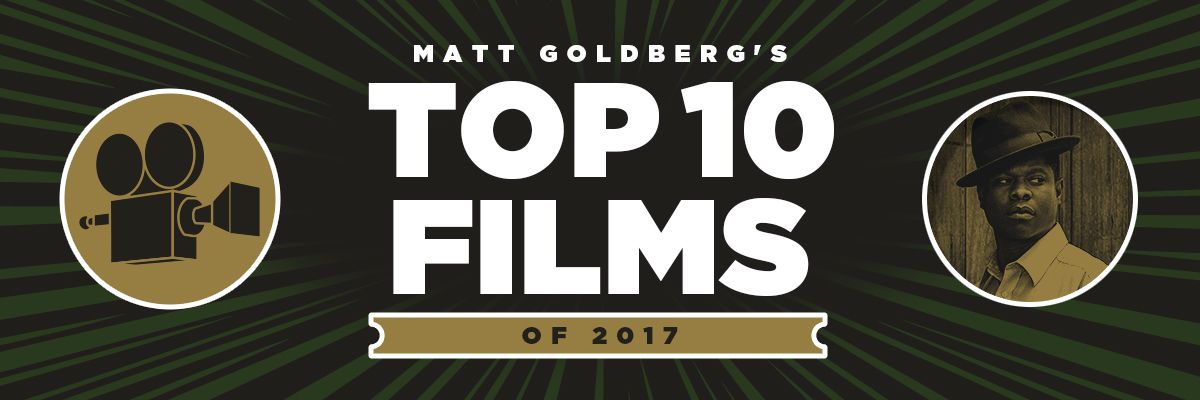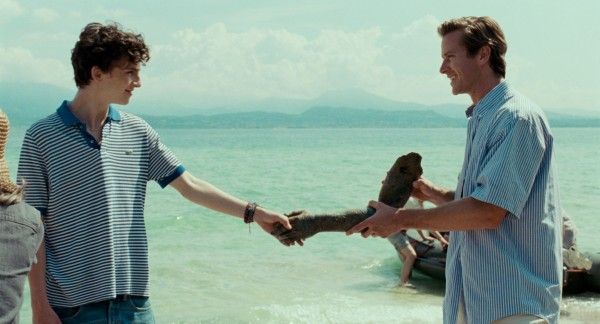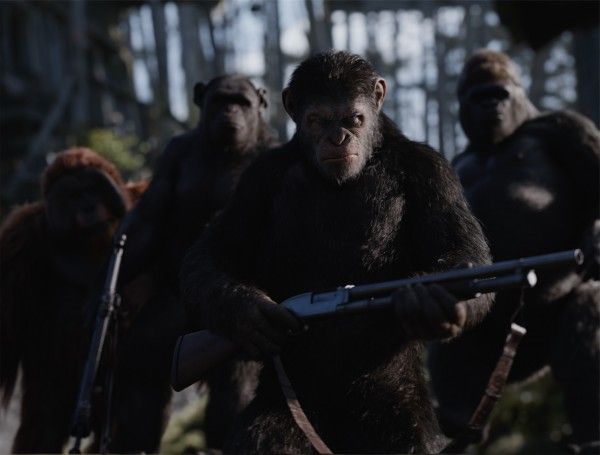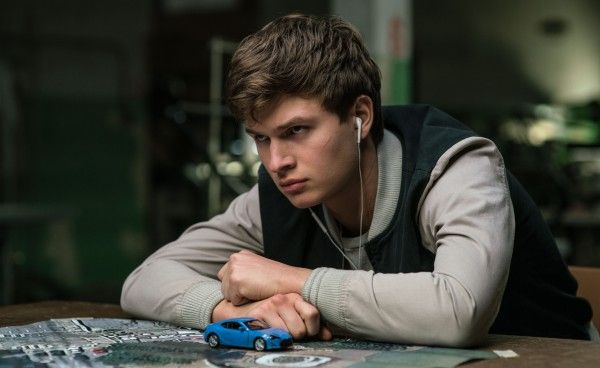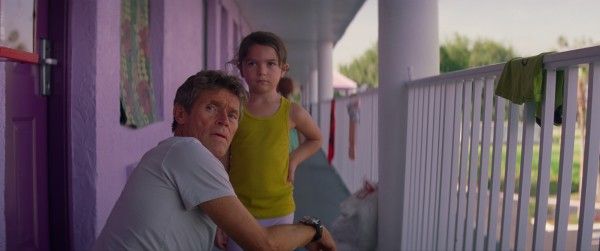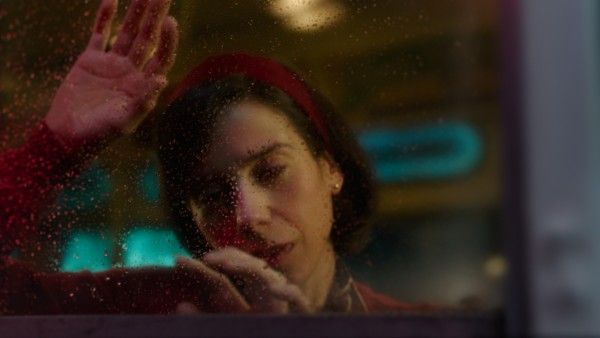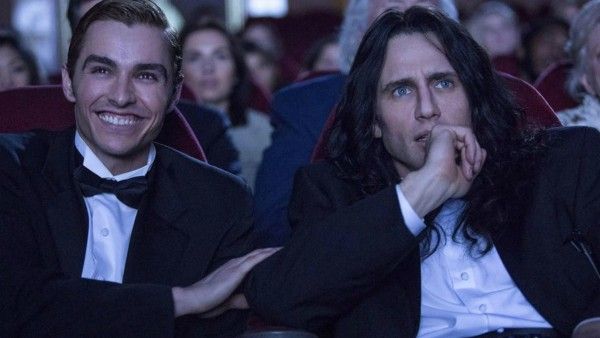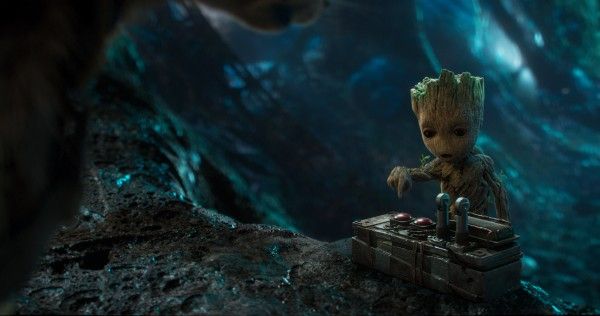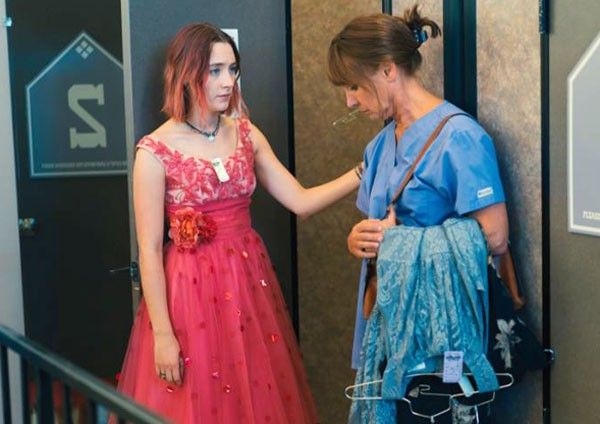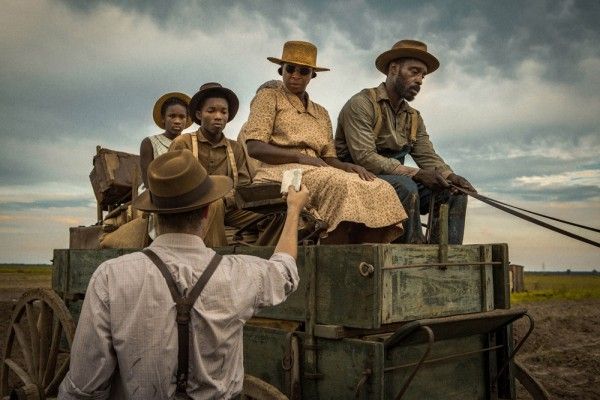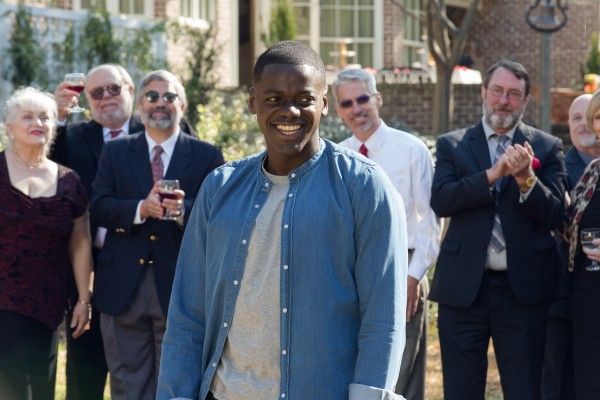You didn’t have to look too hard to find amazing movies in 2017. There wasn’t a month that went by where there wasn’t at least one fairly incredible film, and the challenge of creating a Top 10 list was in whittling down the choices. I was almost tempted to argue for at least a Top 15, but since I feel like the purpose of these lists is to provide recommendations to people who can’t get out to see as many movies as critics, I decided to keep it at ten with a bunch of honorable mentions.
With so many options, I was also torn on what kind of movie I wanted to spotlight. Did I want to go for life-affirming movies or darker material? Did I want to go for movies that will stand the test of time or movies that speak to our current moment? Finding a single throughline always felt like it came at the exclusion of something else, and I have little doubt that if I revisited this list in a month, it would be different, especially since I didn't get around to seeing Good Time, The Lost City of Z, The Square, and a few other buzzed-about movies. 2017 was a year where someone could come up with a Top 10 list that didn’t share a single film with me and it might be tough to argue. So with that in mind, look at my Top 10 of 2017 as a starting place, and always try to see as many movies as you can every year.
10) Call Me by Your Name
When I saw this at Sundance at the beginning of the year, I didn’t fall in love with it like many others, but I deeply respected it. Call Me by Your Name felt like a movie that should already be in the Criterion Collection, a movie destined to be explored and examined for generations. Director Luca Guadagnino submerges us in the setting without ever being overt or cliché with the time or place. And yet the emotional beats didn’t completely click with me for one reason or another.
On a second viewing, everything fell into place and I was wrapped up in the love story between Elio (Timothee Chalamet in an Oscar-worthy performance) and Oliver (Armie Hammer, also Oscar-worthy), complete with all its twist, turns, frustrations, and fulfillments. It’s a beautiful movie that captures a unique coming-of-age story that nevertheless also feels universal. It’s a movie that completely transports you.
9) War for the Planet of the Apes
Even though the final chapter in the Caesar trilogy didn’t do as well at the box office as previous installments, it’s arguably the best chapter in the series and the fact that it functions as a conclusion makes it a rarity in an age where franchises must continue until the audience is exhausted. Although the entry can be oppressively bleak at times, it feels like the necessary closing chapter to Caesar’s journey.
War for the Planet of the Apes also harkens back to where earlier Apes movies were unafraid to unleash harsh criticisms on humanity, and specifically America. People may not have been eager to hear that kind of message this summer, but it makes this Apes trilogy more than just a technological landmark. It makes the Apes movies, and especially War, the kind of movies that will stand the test of time, much like the original Planet of the Apes franchise.
8) Baby Driver
Baby Driver is a virtuoso work of direction and choreography that will probably be emulated for years to come. It’s kind of a miracle this movie exists, has this level of precision, and yet for all of its flair, everything is done to serve the characters. Edgar Wright positions music as both empowering and as a defense for Baby (Ansel Elgort), which shows the character’s strengths and vulnerabilities in the same moment.
The level of precision in every aspect of the film is remarkable, and Wright manages to transcend the crime genre and even his own filmography by leaning into a level of darkness and emotion that’s only been glimpsed in his previous features. Baby Driver is still plenty of fun, but what sticks with you is the level of danger, fear, and compromise Baby has to make and the risks he takes to break free.
7) The Florida Project
Sean Baker’s latest feature is absolutely devastating in all the best ways. The character-driven drama takes place over the summer in a cheap hotel, exploring crushing poverty all from the perspective of a child who has no idea how bad she’s got it. And yet the movie never panders or preaches, allowing the narrative to unfold solely through the eyes of six-year-old Moonee (Brooklynn Prince)
This movie broke my heart about a hundred times, and yet I cherish the experience of watching it. It’s an incisive look at poverty, survival, and done with total grace. Yes, the movie is a hard watch in some ways even though it can be unexpectedly funny in others. It’s a movie about life, unconstrained by false narratives or phony characters. The Florida Project feels rich, lived-in, and, especially for 2017, essential.
6) The Shape of Water
Guillermo del Toro will never shy away from genre, but his best films show when he’s able to merge those genre sensibilities with rich subtext. In The Shape of Water, it’s technically the love story between a mute woman (Sally Hawkins) and a fish man (Doug Jones), but he’s able to expand that into a story that goes from forbidden love to a promising look at a more accepting future that will root out prejudiced white guys like Strickland (a delightfully menacing Michael Shannon).
Like del Toro’s best movies, The Shape of Water only gets better on repeat viewings, inviting interpretations and discussions on his use of symbolism, the character motivations, and more. It’s a movie that you just want to sink into, fall in love with the characters, and spend more time with them. Yes, The Shape of Water is a love story between a mute woman and a fish man, but it’s also so much more.
5) The Disaster Artist
As someone who’s not a huge fan of The Room, I didn’t expect to love this movie as much as I did. And yet the neat trick of The Disaster Artist isn’t just making a movie for The Room fanatics; director/star James Franco and writers Michael H. Weber & Scott Neustadter have made a movie about the drive to create even when everyone tells you, correctly, that you have no talent for the thing you’re bent on creating.
While I’m sure the real-life Tommy Wiseau isn’t as charming as the version presented here, The Disaster Artist isn’t trying to paint a complex character study as much as it’s trying to make sure that Wiseau doesn’t come off as a completely selfish jerk. By showing Wiseau as someone who just wants friendship and acceptance, it makes him and his story far more relatable even if he’s a bit of a tyrant making one of the worst movies of all-time.
4) Guardians of the Galaxy, Vol. 2
It still blows my mind a little bit that Marvel made a hangout movie. Rather than try to latch on to the other plot threads of the MCU, Guardians of the Galaxy, Vol. 2 is a lovely little standalone gem that lets you spend time with the characters and watch them grow and change. It’s a movie with its own themes—ego, acceptance, and family—firmly on its mind, and it builds them into a heartwarming conclusion.
Although I really enjoyed Guardians the first time I saw it, I was amazed at how much it grew on me both in terms of the humor (Bradley Cooper’s line delivery is aces) and the emotions (a big summer blockbuster ended with a crying CGI raccoon). For a movie that probably could have just coasted on Baby Groot being adorable, Guardians of the Galaxy, Vol. 2 went above and beyond what we expect from a Marvel movie and a summer blockbuster.
3) Lady Bird
I’m so glad this movie exists and that it functions as an announcement that Greta Gerwig is not only a major talent, but also a talent that can go beyond herself. My fear going into Lady Bird is that the movie would be too autobiographical and Gerwig would have unintentionally created a parody of her mumblecore roles. Instead, she provided a film that was personal and specific. It’s a movie that relishes its lived-in relationships while never being exclusionary.
On my first viewing, I found the movie to be a very good example of the coming-of-age dramedy. Upon a repeat viewing, I see it as one of the best examples the genre has to offer. Saoirse Ronan and Laurie Metcalf are both amazing as they relish both the highs and lows of their mother-daughter relationship, and watching Lady Bird’s rocky senior year, complete with all the honest missteps a teenager makes, turns Gerwig’s debut into an unforgettable feature.
2) Mudbound
I had heard good things about Mudbound out of Sundance, but I was still floored by it when I caught it at TIFF. Dee Rees’ Southern epic feels truly literary in all the best ways, but goes even further by telling two stories—one about a white, landowning family that has fallen on misfortune due to their patriarch’s foolishness, and a black family struggling to get out of tenant farming. It would be a mistake to call Mudbound a “reflection” of our present since the film highlights how little distance we’ve traveled when it comes to race relations.
Mudbound doesn’t have any easy answers, but it draws out some fascinating threads looking at people who don’t have power and giving them a voice while Henry McAllan (Jason Clarke) and his father, Pappy (Jonathan Banks), two white guys who have never been or will ever be oppressed by anything. Even Jamie (Garrett Hedlund) has gone from privilege to seeing how fragile his life is after witnessing horrors he thought he could figuratively and literally fly over. Rees’ film is a rich tapestry, and the only thing that makes me mad about it is that it landed on Netflix rather than opening on 4,000 screens, but so it goes.
1) Get Out
I’m reluctant to call a movie a “classic” when it opens, and usually like to wait at least ten years to see if it holds up. And yet if anyone wants to label Get Out as a classic today, I’m hard-pressed to disagree. I believe this is a film that we’ll still be watching decades from now, and it’s a movie that will inspire other filmmakers to create their own “social thrillers”, biting critiques couched in comforting genres that manage to excite as well as create thoughtful conversations. They may not do it as well as writer-director Jordan Peele, but to be fair, he has set a very high bar.
As political pundits started screaming at the election of Trump, “How did we miss this?!” Get Out was already in the can and getting ready to premiere at Sundance. With his outstanding movie, Peele shows that his finger wasn’t just on the pulse of White America’s racism, but also on how that racism behaves and what it demands. In the world of Get Out, white people aren’t trying to erase black people, but blackness. The black body has it uses, and as long as black people are useful and inoffensive to white people, they can continue to exist. The premise of Get Out’s argument is dark, twisted, terrifying, and yet undeniable. Get Out is cinema at its most potent and powerful, and it’s 2017’s best movie of the year.
Honorable Mentions (in alphabetical order): The Big Sick, Blade Runner 2049, Coco, I, Tonya, IT, The LEGO Batman Movie, Logan, Logan Lucky, The Meyerowitz Stories (New and Selected), Star Wars: The Last Jedi, Stronger, Three Billboards Outside Ebbing, Missouri, Wonder Woman
For all of Collider’s Best of 2017 content, click here, and peruse our other personal staff lists below:

